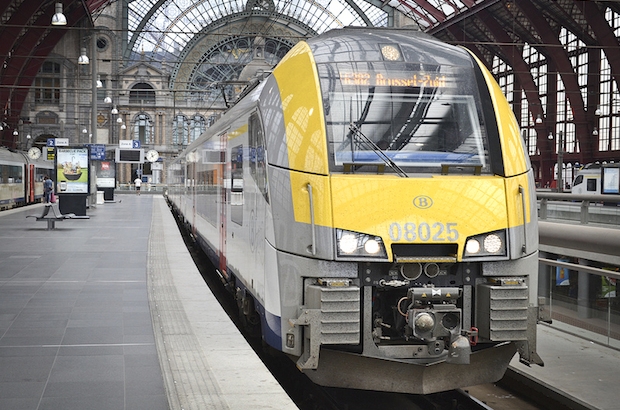- Daily & Weekly newsletters
- Buy & download The Bulletin
- Comment on our articles
Record number of complaints about SNCB punctuality
Belgium’s railway mediator Ombudsrail has announced an “absolute record” number of complaints this year from unhappy SNCB passengers about delayed or cancelled trains.
The increase noted is more than a third – up 34% from 2022. This rise in numbers is not surprising, given that the SNCB’s punctuality rate fell to 85.5% in October. The number of cancelled trains also reached an all-time high of 37,000 this year.
“People are extremely annoyed that they cannot count on trains,” SNCB ombudswoman Cynthia Van der Linden told Het Laaste Nieuws.
“The complaints coming to us are the tip of the iceberg: they only come to us when they cannot get through to the SNCB. So in reality, there are many more complaints.”
The rail company itself acknowledges the problems, particularly the delays in the delivery of new material and a saturation of the network.
SNCB spokesperson Bart Crols said: “This is being monitored together with railway manager Infrabel, with measures such as real-time traffic management, faster resolution of material problems, planning and many other measures. We know things have to improve.”
In addition, the SNCB is continuing extensive recruitment drives. The major staff shortages seen since Covid-19 have caused delays in repairs and maintenance.
In the midst of the poor figures, SNCB said it was working on “its most ambitious train plan ever”. This notably includes expanding its train offer by 10% in the next three years and aiming to increase the number of passengers by 30% over the same period.
“The main intention is to expand supply by focusing on late-night trains on Fridays and Saturdays and by providing more trains at weekends,” Crols told Het Laatste Nieuws.
From Sunday 10 December, the SNCB is launching the first phase of its new train offer, with the adaptations part of the company’s 2023-2026 transport plan.
The increased train service will take shape in several phases between now and 2026, SNCB said, “taking into account the infrastructure, equipment and personnel available”.
The company claims that this will mean some 2,000 additional trains per week will be on the rails in the next three years – a 7.4% increase.
In practice, this means that there will be new connections, an increase in the number of trains and stations served and an adaptation of timetables and the routes of certain trains.
Among the many changes to commuter and general traveller journeys, many stations will be better connected to Charleroi Airport.
There will also be an increased number of suburban trains (S) in and around Liège and more weekend trains between Wavre, Ottignies, Charleroi and Namur.



















